Abstract
Despite the critical role that terrestrial vegetation plays in the Earth's carbon cycle, very little is known about the potential evolutionary responses of plants to anthropogenically induced increases in concentrations of atmospheric CO2. We present experimental evidence that rising CO2 concentration may have a direct impact on the genetic composition and diversity of plant populations but is unlikely to result in selection favoring genotypes that exhibit increased productivity in a CO2-enriched atmosphere. Experimental populations of an annual plant (Abutilon theophrasti, velvetleaf) and a temperate forest tree (Betula alleghaniensis, yellow birch) displayed responses to increased CO2 that were both strongly density-dependent and genotype-specific. In competitive stands, a higher concentration of CO2 resulted in pronounced shifts in genetic composition, even though overall CO2-induced productivity enhancements were small. For the annual species, quantitative estimates of response to selection under competition were 3 times higher at the elevated CO2 level. However, genotypes that displayed the highest growth responses to CO2 when grown in the absence of competition did not have the highest fitness in competitive stands. We suggest that increased CO2 intensified interplant competition and that selection favored genotypes with a greater ability to compete for resources other than CO2. Thus, while increased CO2 may enhance rates of selection in populations of competing plants, it is unlikely to result in the evolution of increased CO2 responsiveness or to operate as an important feedback in the global carbon cycle. However, the increased intensity of selection and drift driven by rising CO2 levels may have an impact on the genetic diversity in plant populations.
Full text
PDF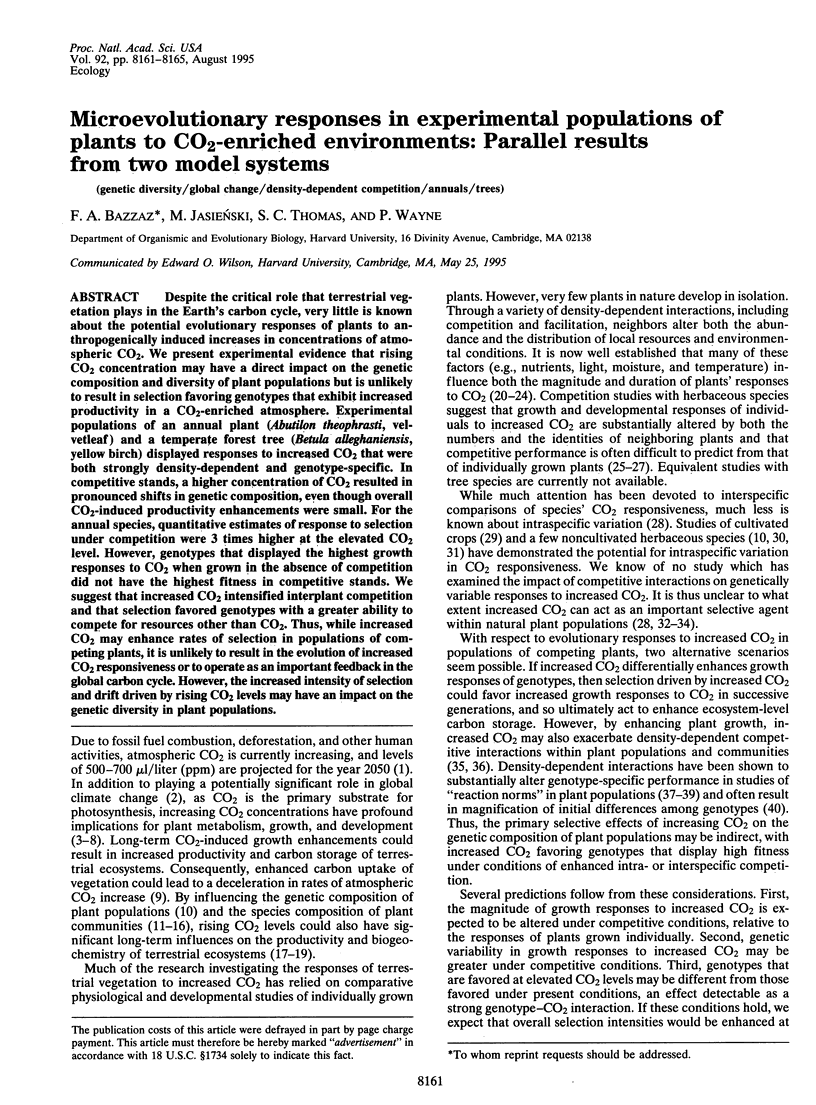
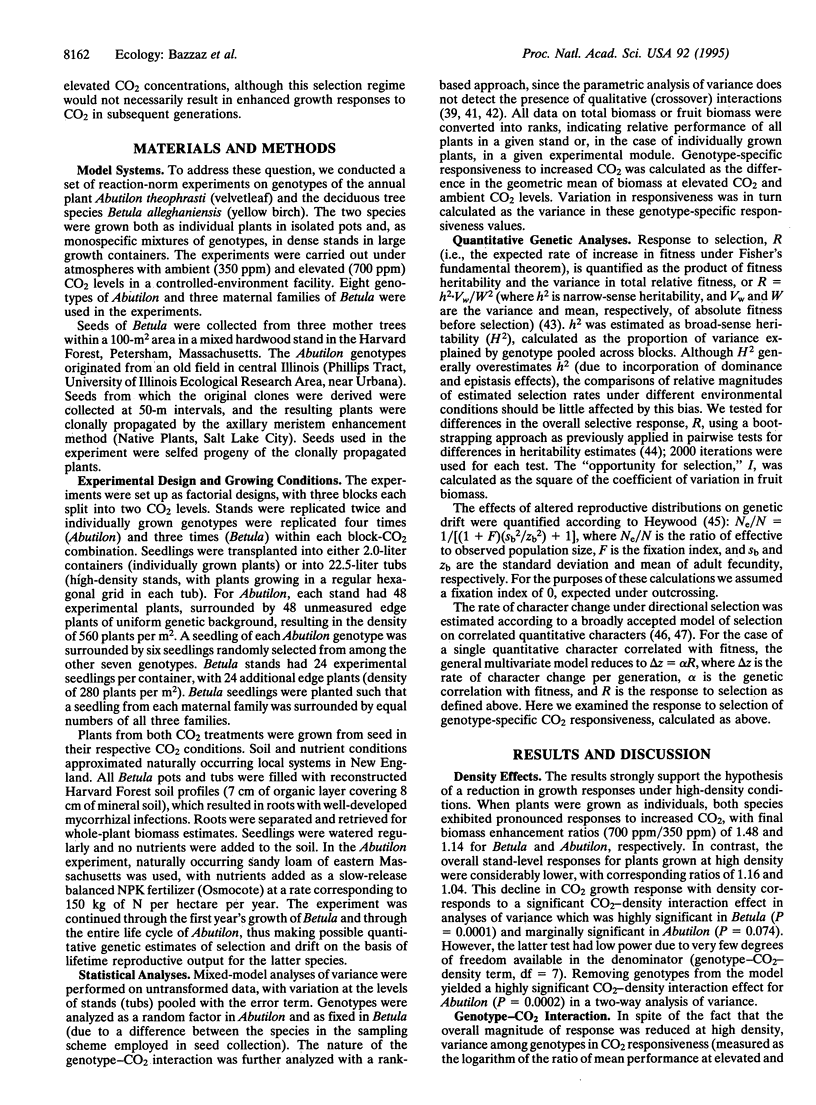
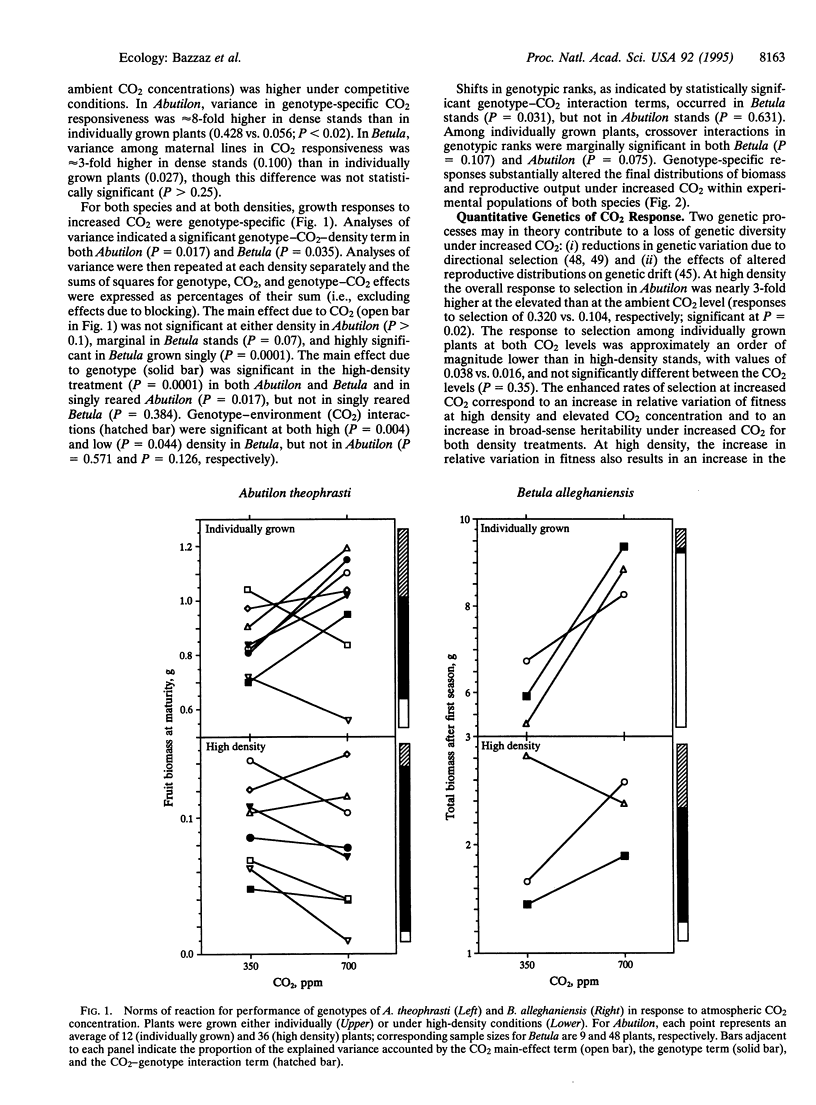
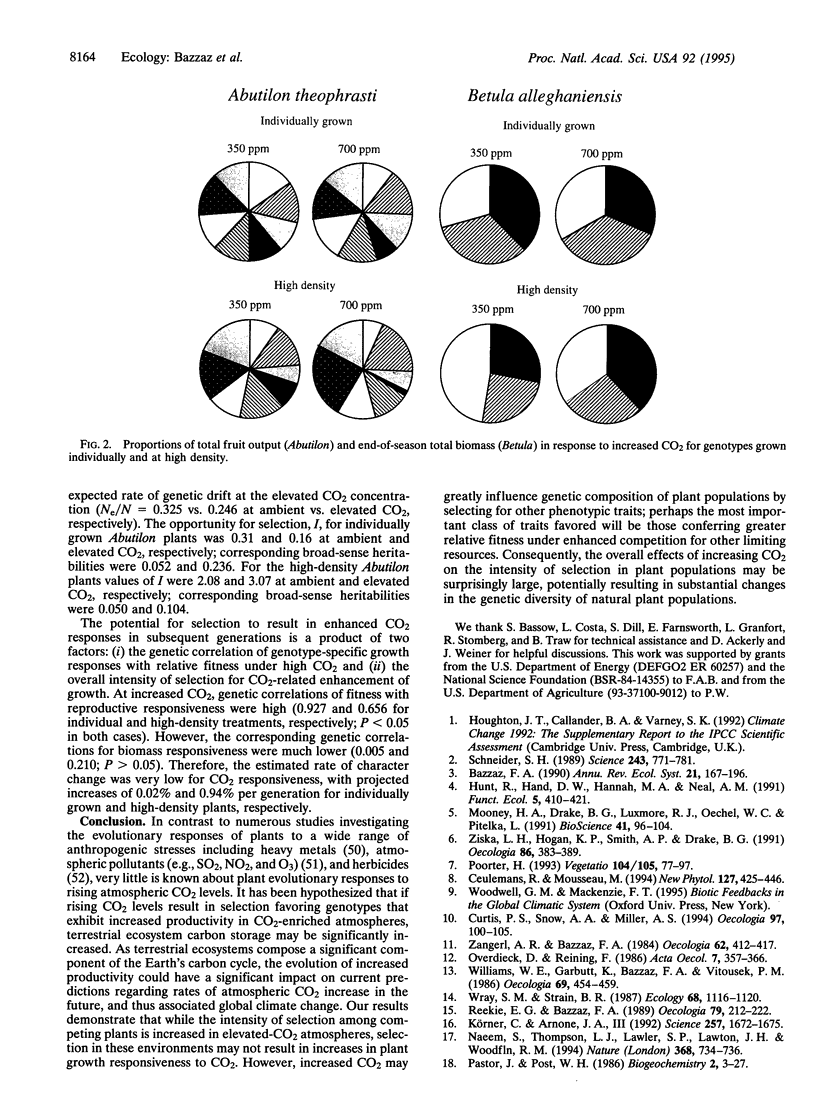
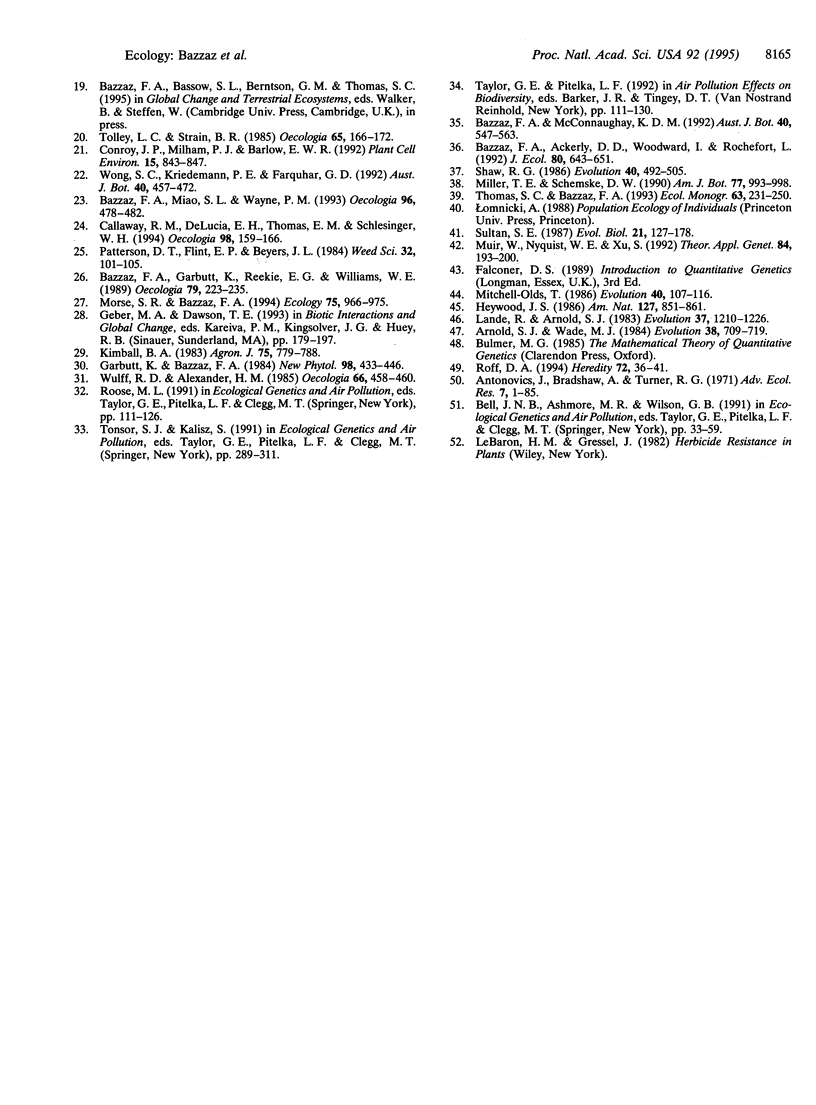
Images in this article
Selected References
These references are in PubMed. This may not be the complete list of references from this article.
- Körner C., Arnone J. A., 3rd Responses to elevated carbon dioxide in artificial tropical ecosystems. Science. 1992 Sep 18;257(5077):1672–1675. doi: 10.1126/science.257.5077.1672. [DOI] [PubMed] [Google Scholar]
- Schneider S. H. The greenhouse effect: science and policy. Science. 1989 Feb 10;243(4892):771–781. doi: 10.1126/science.243.4892.771. [DOI] [PubMed] [Google Scholar]



